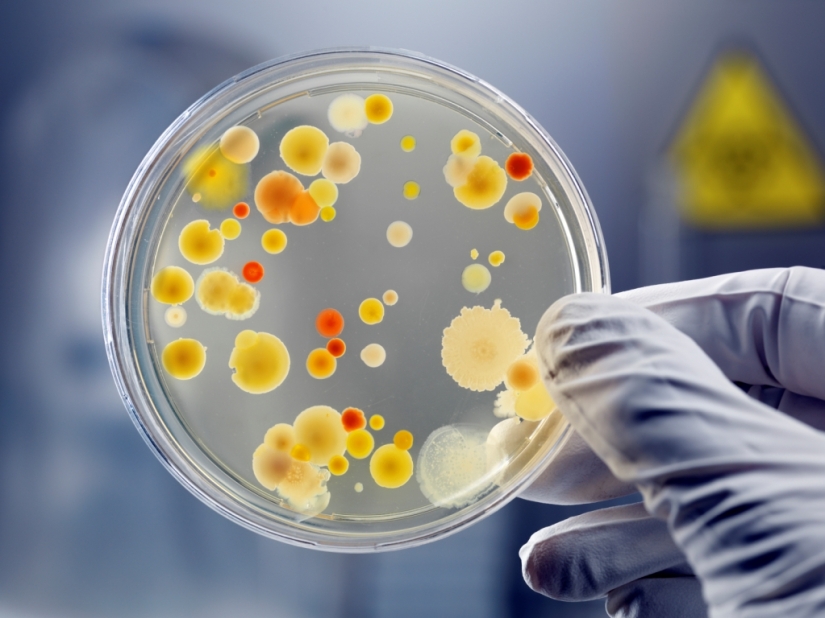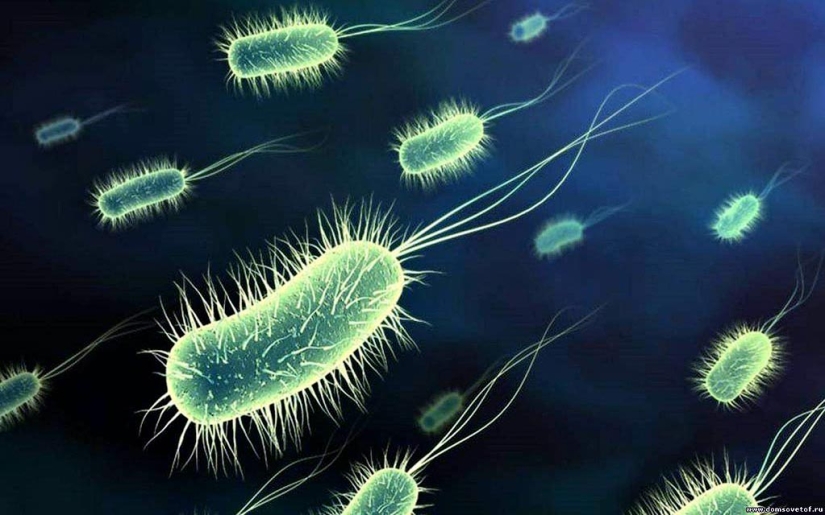Amazing facts about the habitats of insidious viruses and bacteria
Categories: Health and Medicine
By Pictolic https://pictolic.com/article/amazing-facts-about-the-habitats-of-insidious-viruses-and-bacteria1.htmlInvisible to the naked eye, but dangerous and insidious bacteria and viruses can sometimes lie in wait for us in the most unexpected places.
If you think that the information collected in this issue is suitable only to tickle the nerves of hypochondriacs, then this is not so at all. "Forewarned means armed!" Therefore, perhaps after reading these facts, you will have an idea to wipe your computer mouse or keyboard with a bactericidal napkin once again. And this will not be superfluous!


1. Influenza viruses, once on banknotes, can live on them for up to 17 days.

2. 96% of door mats contain traces of fecal bacteria that are carried into the house on shoes.

3. An ordinary computer mouse is three times dirtier than a toilet seat.

4. Our skin loses at least 10 million cells every day. Some of them are transferred with the help of hands to the things around us that we come into daily contact with (beds, remotes, phones, doors, people, food, etc.). Just imagine: if you touch one of these things, and then put your fingers in your mouth, then you will literally eat someone's- that dead skin.

5. The chance of catching a cold from the sealing gum on the refrigerator door is as much as 86%.

6. Keep the restaurant menu away from the plate: germs can linger on it for 18 hours. Just think about how many people touch the menu with their hands during the day, week, month…

7. The office desk at which you work is a haven for about 20 thousand bacteria per 6 square centimeters. There are 400 times more microbes concentrated in the workplace than in the toilet (which, by the way, is regularly cleaned and disinfected).

8. As for the transmission of viruses, even a kiss is safer than a handshake.

9. On average, a mobile phone, headphones and microphone contain up to 1400 bacteria.

10. During coughing or sneezing, bacteria can spread to a distance of one meter and land on the surface, where they can be transmitted to humans within three days.

11. Bacteria are single-celled organisms that are able to multiply very quickly. One bacterium can grow into one billion bacteria in just 10 hours! Bacteria can survive on almost any surface in any climatic conditions of the Earth. For survival, bacteria get nutrients from their environment. In some cases, this environment is the human body. Bacteria can also multiply outside or inside the body, causing infections and causing sore throats, tooth decay, pneumonia, ear infections, etc.

12. Viruses are structurally simpler than bacteria, and, as a rule, are not even considered living organisms. They clone themselves like bacteria and multiply very quickly. Viruses can survive only at the expense of a host cell located in another organism, so they are constantly in search of an object (human or animal) for subsequent infection. An infected cell loses its ability to function normally and is forced to synthesize viral proteins and create more clones of the virus that infected it. After that, the virus forces the host cell to release all the viral particles in order to infect other cells, so that a particular disease begins to develop.
Keywords: Bacteria | Virus | Hygiene | Facts
Post News ArticleRecent articles

It's high time to admit that this whole hipster idea has gone too far. The concept has become so popular that even restaurants have ...

There is a perception that people only use 10% of their brain potential. But the heroes of our review, apparently, found a way to ...
Related articles

"Wash your hands before eating!" — a phrase familiar to us since childhood. The parents explained that with the help of this ...

Many men avoid this topic, but very wrongly … After all, such an elementary process as shaving testicles, in fact, involves a ...

Even from school history lessons, we remember that in the Middle Ages, European cities were real cesspools. Sewage flowed through ...

New Year's is a time to surprise and delight loved ones not only with gifts but also with a unique presentation of the holiday ...